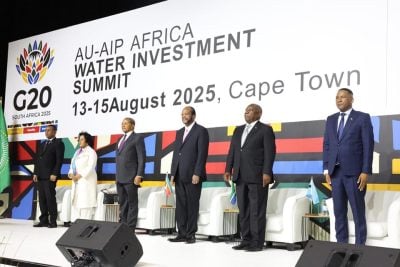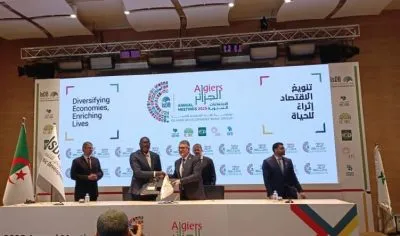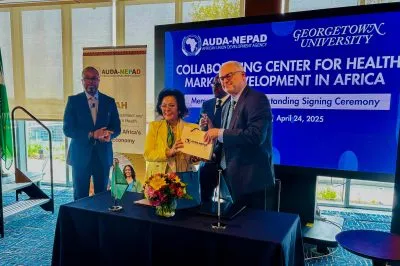This article was produced with the support of Africa Finance Corporation
We have an urgent need to preserve both the forests and peatland of the Congo Basin. Forests sequester 1.5bn tonnes of CO2, while peatlands store 31bn tonnes of CO2.
Peatlands represent three to four years’ worth of greenhouse gas emissions for the entire planet. Today, the Congo Basin is ultimately humanity’s bulwark, because it is the basin that is the planet’s “net zero sequestrator”.
Forests can regenerate even after deforestation, but peatlands, which are a natural phenomenon of leaf storage, cannot.
I’ve been Minister for the Environment and coordinating the Congo Basin for seven years, and I don’t understand the various Conferences of the Parties on climate and biodiversity. We see a lot of financial announcements, but I can’t see where the money is going.
One of the key takeaways of the Three Basins Summit in Brazzaville last October, which brought together representatives of the Amazon Basin, the Congo Basin and the Borneo-Mekong Basin in South-East Asia, was the reconciliation of law, environment, climate and biodiversity, which are intrinsically linked. And today, we have identified projects to be financed that stem from our Nationally Determined Contributions. And they are just waiting to be financed.
How can we finance an energy transition? As an oil-producing country, we are being asked to withdraw from fossil fuels. But how can you move towards an energy transition if you don’t have the means to finance it?
People talk all the time about mitigation – fine, but give us funds for adaptation!
In the Congo Basin we are providing an ecosystem service to the planet. The region is humanity’s last bastion.
We had the support of António Guterres, the Secretary-General of the United Nations, at the Brazzaville Summit, who mobilised all his UN agencies to reduce this gap, this climate injustice.
We have a tool, the Congo Basin Blue Fund, set up with the World Bank and the UNDP (United Nations Development Programme). We now have all the guarantees we need to enable all our partners to work with this tool, in complete transparency.
But what are we seeing? In fact, we are seeing the arrival of other financial projects to prevent the money going directly to those who regulate the global climate.
It’s the same thing for island countries, which are disappearing before our very eyes. We wait for them to disappear before shouting “Oh, they’ve disappeared!”
The same thing is happening in the Sahel with desertification, despite the Great Green Wall. Twenty years after this great initiative, there is still no funding.
Do you want to know how you can help us? We have projects and programmes based on our Nationally Determined Contributions. We need capacity building. We need technology transfer. As a result, we need the financial resources to implement all these mechanisms.

 Sign in with Google
Sign in with Google 



